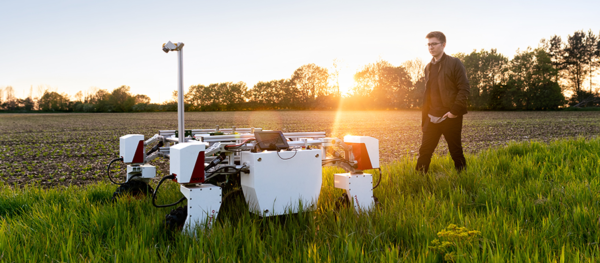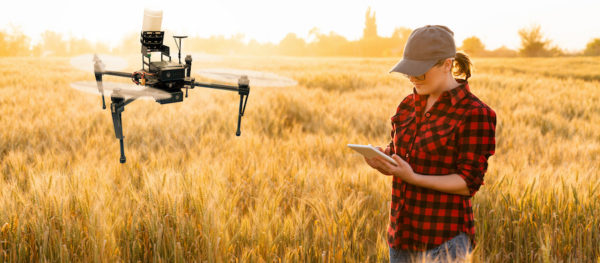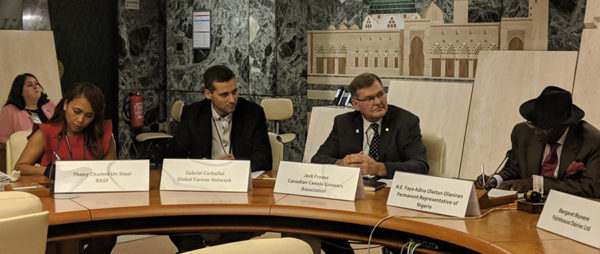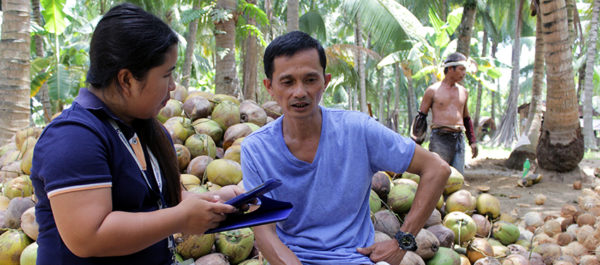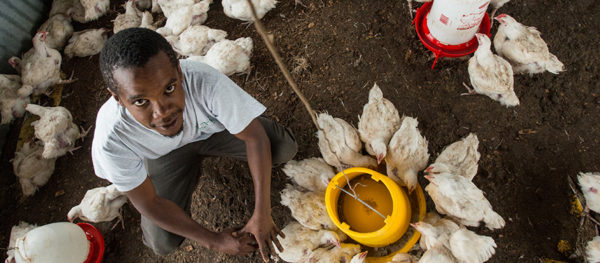Tag: digital

Digitisation is Key to Strengthening Local Food Production and Global Competitiveness
Global: Agricultural digitisation can help to improve not only local food production and competitiveness, but overall community health.
Read MoreDigital Agriculture: Strengthening Food Systems Through the Pandemic and Beyond
Global: Robynne Anderson, President of Emerging Ag Inc
Read MoreAgricultural Innovations to Shape Future of Farming Highlighted at FAO
Global: Farming First reports back from FAO Innovation Symposium side event on the role technology can play in enhancing agroecological outcomes.
Read MoreHow Digital Farming Will Help Feed the World and Protect the Planet
Global: Appropriate technology can empower farmers, feed the world and protect the planet.
Read MorePutting the Answers to Successful Farming at Young People’s Fingertips
Africa & Middle East: Vanessa Mukhebi of production company Mediae discusses the digital innovations helping youth farmers with agronomic and budgeting challenges.
Read More